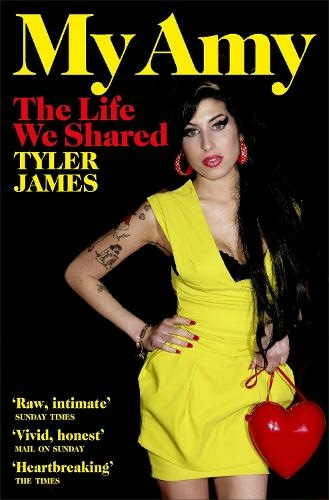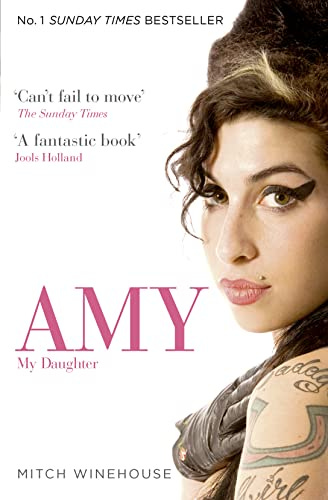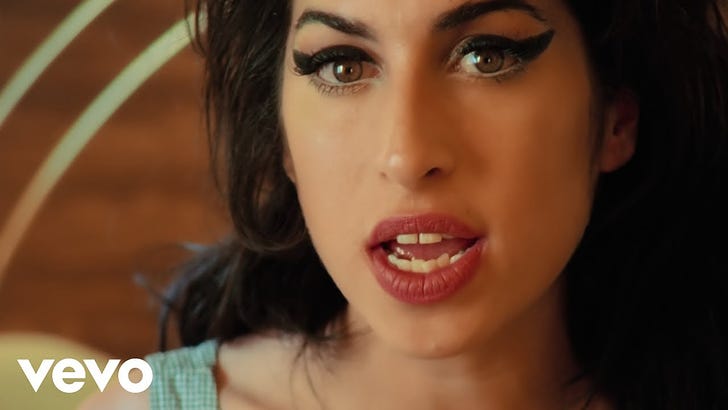I’m writing this on my way back from London after the UnHerd Tradwife debate and three drinks deep — if you were there, thank you for coming and I hope you enjoyed it! This week, I wrote for UnHerd about the weird bargain of fat positivity and also covered the TV column for the Sunday Times, which involved the extraordinary experience of watching six hours of a comedy that did not make me laugh once (which is why I was taking refuge in the safe harbour of Steptoe last week).
I have thoughts about the death of OJ Simpson, of course, although a lot of these are already in the Kim chapter of Toxic (for those who don’t know: the Kardashian family first rose to public attention via father Robert’s involvement in the OJ defence team — an association that, through its prismatic concentration of America’s racial and sexual politics, weirdly presaged the discourse-fueling power of Kim’s is-it-or-isn’t-it-cultural-appropriation bum).
But all that will have to wait, because this week I also saw Back to Black and hoo boy do I need to get some stuff off my chest about that.
Listened
Amy Winehouse, “Tears Dry on Their Own”
Did I expect it to be good? No, I did not. Partly that’s because I had seen the trailer, including the very much mortal line delivered by Amy to her manager Nick Shymansky at 19 (also the team managing the Spice Girls): “I ain’t no Spice Girl!” It’s weird, maybe, that I’m so hostile to this specific moment: after all, the main thing that I was drawn to when writing about Amy in Toxic was her ambiguous relationship to celebrity. In the sense that she wrote her own songs and despised anything that seemed false or manufactured, she wasn’t a Spice Girl; in the sense that she filled a laddette gap in the media landscape, she very much was.
But then, Back to Black the film is not that interested in her ambivalence. The Amy who took cups of tea to the the paps on her garden wall, the one who emailed gossip blogger Perez Hilton to set the record straight about “her man” — she doesn’t exist here. Which makes Amy a weaker character. She is more of a pure victim, afflicted by press intrusion and heartbreak rather than either an artist who courted destruction because she believed it would serve her art, or an addict who used art as an alibi for her addictions.
The most deathly part of any biopic, though, is the “artist does the song” bit. These are even stranger to watch in a world where something like Peter Jackson’s Get Back has laid out the odd alchemical process of music coming into being — there is something gloriously uncanny about seeing a song that is almost exactly but intangibly not quite the one you know come into being between musicians. There is a sort of magic in seeing Marisa Abela’s uncannily exact Amy knock out a version of “Tears Dry” while mooning around a Blakeless house, but it is necromancy rather than anything wholesome. Abela is terribly committed and precise in the role (and, God, so very thin), but I cannot shake the question of why she bothered.
Watched
Back to Black (in theatres)
I think there is a good version of an Amy film, but it would be quite weird. The film I’d love to see would be something close to Michel Gondry’s The Science of Sleep, or maybe Charlie Kaufman’s Synecdoche: a story of artistic obsession told in and through the obsession. A movie comprised, ideally, of twelve or so songs — an album’s worth, some of them Amy’s but most of them not — and a music video-esque production accompanying each starring Amy herself.
I like this idea because it feels like a way of showing what it’s like to live inside a fiction. The bleakest part of The Science of Sleep is the bit where you have to reckon with the possibility that the main character’s fantasias are not his salvation: they are just the strange effusions of a brain ravaging itself. Back to Black, though, can’t ask itself the unanswerable question: what if the art was not worth the destruction? Awkwardly (because the bargain suggested really is repulsive: a life for a songbook), but doggedly, it pursues the idea that there was something glamorous in her life.
You can tell this is a bust as an approach from the way it simply gives up on portraying her post-Back to Black (the album) spiral years. Obviously, addicts dying of their addictions is not that inherently glamorous, and it would be difficult to get her estate’s sign-off on a girl version of Requiem for a Dream. And yet the alternative is this: not sympathy, because it is not honest enough to have sympathy, but mawkishness. Kitsch. The most likely afterlife of this film seems to me to be a Mommy Dearest embrace by camp: cinemas full of beehived-up larpers squawking “I ain’t no Spice Girl!” at the screen in perfect sync.
Read
Sundry Amy biographies



I don’t know if I fully made this point in Toxic, but an odd feature of the Amy biography industry (maybe not odd given the awfulness of losing someone you love, especially a child) is how proprietorial it is: her father’s account is called Amy: My Daughter, her mother’s is called Loving Amy and her friend Tyler James’s simply My Amy. I don’t say this as a judgement, and I think I probably bring my own fannish possessiveness to proceedings with Toxic. That chapter not intended to be definitive (it is after all a study of her stardom, not her psyche) — but my book still stakes its own claim to a version of her which I probably do believe in more than any other.
This is perhaps simply a commonplace for celebrity reputation, but it points to a problem for a film that purports to offer a version of Amy from the inside. We don’t have access to that Amy, only to other people’s versions of her. For all her confessions, she was always constructing a public performance; and though I know this is an extremely “wrote the book” problem to have, it’s bizarre to hear her interview cuttings relayed at though they were private utterances when they were said for the media. The insistence on her relentless authenticity makes her seem less of an artist, in the end. It’s a poor tribute to the work she did.
Gimme, gimme more…
The Cass review is here in full.
A sign of its significance: the BMJ ran an editorial reflecting on it the poor quality of studies on youth gender medicine. And all it took was a little 400 page systematic review.
Ann Manov liked my book which is even more of a relief now I’ve read her takedown of Lauren Oyler and seen what she can do when her blood is up.
I bang on a lot about the death of the celebrity profile but Rihanna interviewed by her stylist is quite the low.
I read this piece about the Swiftie turn against her ex Joe Alwyn, driven by her Tortured Poets Society-trailing playlists of her own songs in new and tantalising thematic arrangments, and had the fleeting thought that Taylor is a true entrepreneur of the emotional terrorism pioneered in Kathy Acker’s work. Not sure yet if this is a whole idea but I’ll see where it goes.





Taylor as an entrepreneur of emotional terrorism rings incredibly true. I know it's just a footnote but--oh yes. The Swifties go from writing love letters to her boyfriends (there's one to Calvin Harris about how he's taking such good care of "their" girl) to wanting to destroy them incredibly predictably. It's a fierce protectiveness that her team has fostered incredibly well.